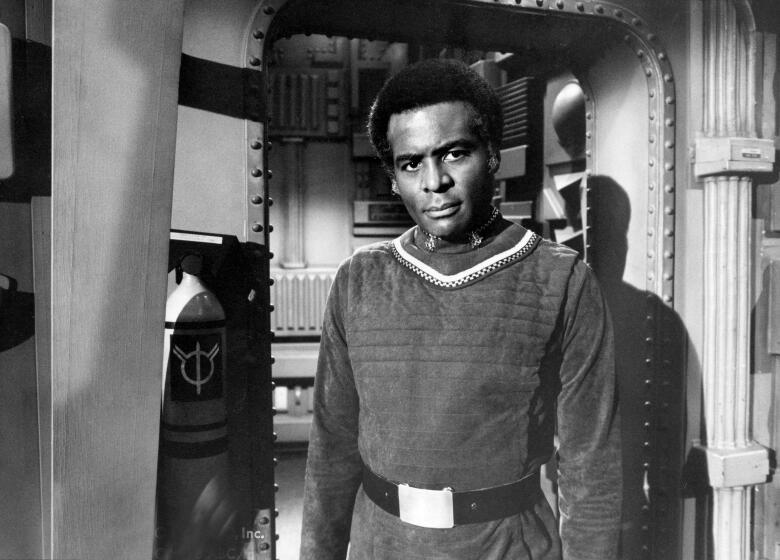Terry Carter, actor known for original 'Battlestar Galactica' series and 'McCloud,' dies at 95

Actor Terry Carter, who starred in TV's original "Battlestar Galactica" and "McCloud," and the film "Foxy Brown," has died.
Carter "died peacefully" at his home in New York City on Tuesday, his website announced. No cause of death was revealed. He was 95.
The website paid tribute to Carter and his trailblazing career, remembering him as "one of the first Black actors as a regular on a TV sitcom series." The Brooklyn-born star, who began his decades-long career amid the civil rights movement, first gained TV notoriety for his time on "The Phil Silvers Show" from 1955 to 1959.
For more than 90 episodes, Carter starred as Pvt. "Sugie" Sugarman opposite Silvers' Sgt. Ernie Bilko. Despite a four-year tenure on the CBS sitcom, Carter's next major television role did not arrive until NBC's police drama "McCloud" hit the air in 1970. Carter starred as Sgt. Joe Broadhurst opposite Dennis Weaver's daring Sam McCloud.
Read more:Soap opera star and screenwriter Meg Bennett has died
Adding to his network TV spotlight, Carter most notably originated the role of Col. Saul Tigh in the original "Battlestar Galactica" series, which ran from 1978 to 1979 on ABC. As Tigh, a straightforward executive officer who helped the Galactica's operations run smoothly, Carter appeared alongside Richard Hatch, Dirk Benedict and Lorne Greene, among others.
Carter's TV credits also included "Playhouse 90," "Mr. Belvedere," "227" and "The Cop and the Kid." He also graced the silver screen during his career, appearing in minor roles in films including "Parrish," "Attraction," "Brother on the Run," "Foxy Brown" and "Benji."
Born to William and Mercedes DeCoste on Dec. 16, 1928, Carter pursued an entertainment career after enlisting in the U.S. Merchant Marine — under which he traveled to Europe and parts of South America, according to his website. After time at sea, Carter returned to New York, where he worked at the Museum of Modern Art, which exposed him to a host of avant-garde independent and foreign films and sparked his interest in entertainment.
Read more:Mandisa, 'American Idol' star and Grammy-winning Christian music singer, dies at 47
He attended Northeastern University to study pre-law, but a growing interest in drama and theater derailed that path. After deciding to pursue acting full time, under the mentorship of actor Howard da Silva, he adopted the last name Carter as his stage name.
Performances in theater productions including Greenwich Mews Theatre's "Decision," Broadway's "Mrs. Patterson" and "Finian's Rainbow' at the City Center Theatre paved the way for Carter's medium- and genre-spanning career.
Carter was also a director and producer who earned an Emmy nomination for directing an episode of "American Masters" about the life of jazz giant Duke Ellington. He also directed and produced "The Katherine Dunham Technique," a project that offered a deep dive into the trailblazing choreographer's teachings.
Carter served on the Academy of Television Arts & Sciences' board of governors for two terms. He also founded Council for Positive Images, a nonprofit dedicated to "enhancing intercultural and interethnic understanding through audiovisual communication."
Read more:Eleanor Coppola, matriarch of the Coppola filmmaking family, dies at 87
He is survived by wife Etaferhu Zenebe-DeCoste, children Miguel and Melinda, a granddaughter and many cousins. He was preceded in death by ex-wives Anna DeCoste (married 1964–1990) and Beate Glatved DeCoste (married 1991–2006).
A private family memorial has been planned.
This story originally appeared in Los Angeles Times.
